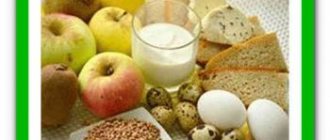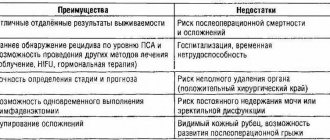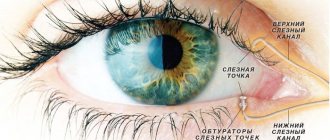During pregnancy, heartburn plagues everyone, even if expectant mothers did not know about its existence before. Expectant mothers are concerned about a burning sensation in the sternum and esophagus, sometimes accompanied by pain. Constant heartburn accompanies women throughout pregnancy. It occurs due to the release of gastric juice into the esophagus - the acid irritates the mucous membrane, which is why this disease develops. How to eliminate heartburn so that it does not constantly torment a pregnant woman will be discussed in more detail below.
Diet principles for heartburn during pregnancy
A pregnant woman often has an increased appetite, has a craving for a strange combination of foods, cravings for spicy, salty or sweet things, which can contribute to a burning sensation. The basics of the diet are simple. Avoid foods that increase acidity and irritate the gastric mucosa. Eat often, but little by little. Stay away from preservatives, artificial flavors and sweeteners. When cooking, replace regular salt with sea salt.
Nutritionists recommend a low-carbohydrate diet, which is based on limiting the consumption of sweets, baked goods made from shortbread or butter dough, and cakes with rich buttercream.
Why does it happen
An unpleasant symptom in the form of heartburn usually occurs starting from the 4th month, as soon as toxicosis ends. As the pregnancy progresses, the discomfort in the stomach only intensifies. The causes of heartburn during pregnancy include the following:
- Hormonal changes . Pregnancy increases the production of the hormone progesterone. It relaxes smooth muscles throughout the body, including the sphincter that separates the stomach from the esophagus.
- Muscle dysfunction . The same progesterone disrupts the normal functioning of many muscles. There are delays in the movement of food from the stomach to the intestines, the digestion process is lengthened, causing gastric juice to be produced even more.
- Gradual growth of the fetus . The growth of the uterus reduces the free space in the abdominal cavity, putting pressure on the stomach, promoting the release of acid into the esophagus.
- Increased juice production . Due to hormonal changes, there is an increased secretion of juice, which simply is not retained in the stomach.
- Fetal movement . This happens at the end of pregnancy, then the baby begins to actively move inside the mother. His movements can cause heartburn suddenly and unexpectedly. In addition, nausea and vomiting may develop.
This is why pregnant women almost always experience heartburn. It must be said that all symptoms of heartburn during pregnancy disappear as soon as the baby is born. It is impossible to completely eliminate symptoms during pregnancy, but you can stop them temporarily and alleviate the condition in various ways.
Basic rules and features of the diet
- You need to eat often, at least 6-7 times, without overeating. This is often enough to reduce heartburn.
- After eating, take a walk or sit quietly for a few minutes.
- Don't force yourself to eat.
The diet should include healthy foods that help relieve burning and in sufficient quantities:
- include dairy products in any quantity, they help with heartburn;
- give preference to boiled or stewed meat, fish, vegetables;
- vegetable and butter, non-acidic berries, fruits are useful;
- avoid fatty, salty and spicy foods;
- Sweet carbonated drinks are contraindicated.
Drug treatment
Heartburn in pregnant women, especially at the end of pregnancy, does not go away completely; it can only be weakened. How can you save yourself if severe heartburn during pregnancy torments the expectant mother? To avoid a severe attack, doctors advise taking safe drugs that have a stomach-coating effect. They do not enter the blood and do not distort the acid-base background. How to treat abdominal discomfort in expectant mothers - for this, doctors prescribe antacids that neutralize acid in the digestive system. They are safe for fetal development. Sometimes doctors prescribe drugs from a different group if they do not cause negative consequences.
It is important to know that women can take pills only as a last resort, if the use of folk tricks has not brought results.
How to get rid of heartburn during pregnancy with medications, you should use the following drugs:
- Almagel . Antacid. A long-acting drug that regulates the concentration of acid in the gastrointestinal tract. Throughout the entire duration of action, the formation of carbon dioxide does not occur, so a secondary attack of heartburn does not develop. Drink 30 minutes before meals.
- Maalox . Antacid. It has adsorbing and enveloping properties. Absorbs excess acid and gas, and eliminates pain for several hours. Take the tablet 1.5 hours before meals or when heartburn occurs.
- Rennie . Has antacid and gastroprotective effects. The most popular drug among pregnant women. The active ingredients in it are calcium and magnesium carbonate. By entering into a chemical reaction with acid, they neutralize it and form mucus, which protects the walls of the stomach from the negative effects of an acidic environment.
- Ranitidine . Antagonist of histamine H-2 receptors. Prescribed to pregnant women when antacids are not able to cope with heartburn.
- Gaviscon . Has antacid and gastroprotective effects. An easily digestible drug that quickly eliminates heartburn, take a tablet after a meal and at night. Can only be used if the burning sensation is severe. In the gastrointestinal tract, it reacts with acid, forming a gel that softens the negative effects on the surface of the stomach and esophagus.
The choice of medications for heartburn is quite large, but are they all so harmless? All those drugs that are allowed for pregnant women have side effects:
- Antacids can remove beneficial substances from the body. Treatment with other drugs or taking vitamins excludes the elimination of heartburn with antacids.
- These medications cause constipation, which already affects pregnant women.
- Magnesium, which is often found in antacids, relieves constipation, but may have a negative effect on the development of the baby.
Based on this, drugs should be used when folk remedies fail. But you shouldn't resort to them often. Does heartburn occur from taking other medications? Yes, it develops against the background of the use of antispasmodics - No-shpa, Papaverine. They relax the sphincter, which allows the spontaneous release of gastric contents into the esophagus. Be sure to drink more clean water between meals to dilute the concentration of acid in the stomach.
Sample menu for the day
- Breakfast: oatmeal on water with nuts and dried fruits, a glass of yogurt or orange juice, yesterday's baked bun with butter.
- 2nd breakfast: 2 soft-boiled eggs, savory crackers, banana or baked apple, rosehip tea.
- Lunch: broccoli soup, stewed fish with vegetables, white bread, compote or jelly.
- Afternoon snack: fresh cottage cheese with sour cream, berry sorbet, tea with milk or a glass of peach juice.
- Dinner: mashed potatoes, steamed meatballs, fresh vegetable salad with vegetable oil, kefir.
- Before bed: rice milk porridge or a glass of warm milk with cookies.
If all else fails
If severe heartburn does not go away during pregnancy, and many methods have already been used to eliminate it, only a doctor will tell you what to do in this situation. All problems are reported to your leading gynecologist. There are two ways out of this situation: wait until the baby is born or get tested for liver and digestive tract diseases. They can get worse during pregnancy. In this case, the gastroenterologist should prescribe treatment that is gentle on the baby in order to eliminate the unpleasant symptom.
This problem occurs in every woman, so gynecologists know exactly what to do in such situations. You should not use unverified advice; it is better to consult a doctor in case of persistent symptoms.
Every expectant mother should know how to relieve heartburn during pregnancy in safe ways. After all, this phenomenon is physiological and can be easily eliminated, you just need to lead the right lifestyle.
What causes heartburn?
Foods that cause heartburn and belching are not the only cause of this phenomenon. There are a number of other factors that provoke this disease:
- poor nutrition;
- frequent overeating;
- clothing that compresses the stomach;
- non-compliance with a healthy lifestyle;
- increased stomach acidity;
- sensory cells of the stomach;
- lifting weights;
- overeating before bed;
- obesity;
- taking medications (such as Aspirin or Diclofenac);
- frequent stressful situations;
- pregnancy.
Naturally, pregnancy is not a disease, but it has been observed that foods that cause heartburn in pregnant women do not affect the stomach acidity of other people.
What foods help quickly relieve heartburn?
It is possible to eliminate heartburn with the help of products, and this method is the simplest - you do not need to run to the pharmacy for expensive drugs, because many “rescuers” are almost always at hand. And such products that help out at the right time include not only baking soda.
Recipes for quickly eliminating heartburn:
- Finely grated carrots will help calm your stomach; to achieve the effect, you should eat them slowly.
- Oatmeal cooked in water can extinguish a fire in the esophagus.
- A banana eaten after a hearty breakfast rids your body of excess gastric juice, so it will also serve as an excellent remedy for heartburn.
- Potato juice is a recognized lifesaver for people suffering from heartburn. To be effective, you need to drink this juice in a course - a quarter glass 3 times a day before meals. It is better to drink potato juice on an empty stomach, and it is recommended to eat food only after an hour.
- Fresh crushed ginger - consume only 4 g per day.
- Boiled peas - chew them thoroughly and only then swallow.
- Drink warm and most importantly low-fat milk in small sips. You can also try kefir instead of milk as a remedy for heartburn - nutritionists and doctors say that fermented milk products are more effective in fighting heartburn.
- Still water will help quickly relieve an attack of heartburn.
- Heartburn suddenly started? Eat any boiled porridge. The exception is instant porridge - they are harmful even for a healthy person.
- Steamed veal cutlets and other lean meats, boiled chicken fillet, and rabbit meat are good remedies for heartburn: the stomach spends a large amount of acid on digesting protein, which means it will be directed in the right direction and will not bother you after the meal.
- Puree soups envelop the stomach lining and have a gentle effect on it, helping to get rid of the feeling of fire inside.
- Seeds and various nuts also help quickly eliminate heartburn. The main thing is that it is a natural product without additives - various store-bought snacks with flavors will not work.
- If you have heartburn, chew barley grains or oats - the saliva released will help reduce the burning sensation.
- Boiled egg shells ground in a coffee grinder easily neutralize the effect of hydrochloric acid due to the high calcium content, which, in turn, blocks the burning sensation. To relieve an attack, take half a teaspoon of powder and drink a glass of water.
- A teaspoon of olive or sunflower oil also relieves heartburn by coating the stomach lining.
As you can see, there are many helpers in the fight against heartburn, and all of them are often found in our kitchen.
Causes
The medical term for heartburn is gastroesophageal reflux, gastroesophageal reflux, acid dyspepsia. Reflux means the reflux of the contents of hollow organs above their level, the reverse flow of contents compared to its normal movement. Gastric juice contains hydrochloric acid and gastric enzymes necessary for digesting food. Hydrochloric acid can also be digested by the stomach, but this does not happen due to special protective mechanisms. Protective mechanisms include constant renewal of cells in the walls of the stomach, the presence of a special mucous barrier, continuous blood supply to the gastric walls, and others. The esophagus does not have such protective mechanisms, since hydrochloric acid and digestive enzymes are not normally present in it. At the junction of the esophagus and the stomach there is a sphincter - the lower esophageal sphincter (LES). Normally, the sphincter prevents stomach contents from entering the esophagus. If the contents of the stomach enter the esophagus, damage to its walls occurs, which is accompanied by discomfort in the sternum and a burning sensation.
During pregnancy, the uterus increases in size, intra-abdominal pressure increases, which leads to compression of the stomach, its movement upward and reflux of gastric contents into the esophagus. Another factor leading to heartburn is hormonal changes. During pregnancy, progesterone levels increase, which relaxes smooth muscles in the body. This is necessary so that the uterus (smooth muscle organ) is not in good shape, which would negatively affect the course of pregnancy and increase the risk of premature birth. Progesterone affects not only the muscles of the uterus, but also all smooth muscles of the body. As a result, the lower esophageal sphincter relaxes. As a result, its main function is disrupted - preventing gastric contents from entering the esophagus.
Heartburn can appear both in the early stages of pregnancy and in the later stages. The cause of heartburn in early pregnancy is the relaxation of the lower esophageal sphincter under the influence of progesterone. In late pregnancy, the influence of this hormone decreases, but the uterus increases significantly in size, which leads to compression of the stomach and reflux of its contents into the esophagus.
There is an opinion that if a pregnant woman is bothered by heartburn, then the fetus grows hair and nails. This is nothing more than fiction and the appearance of heartburn has nothing to do with the growth of hair and nails in the fetus. Also, the presence of heartburn does not affect the development of pregnancy in any way.
But heartburn is not always a consequence of physiological changes in the body of a pregnant woman. Often, concomitant pathologies (which worsen during pregnancy) also cause heartburn. If normally heartburn does not appear in all pregnant women, then in the presence of these diseases, heartburn is a constant companion of pregnancy.
Pathologies that provoke heartburn include:
- gastroesophageal reflux disease (GERD) – refers to a chronic relapsing disease in which the contents of the stomach regularly reflux into the esophagus, affecting its lower section;
- gastritis – inflammation of the gastric mucosa;
- dyspepsia - a violation of the normal function of the stomach, characterized by severe painful digestion;
- cholecystitis - inflammation of the gallbladder;
- pancreatitis - inflammation of the pancreas;
- gallstone disease is a pathology characterized by the presence of stones in the gall bladder;
- oncological diseases - the presence of tumors in the gastrointestinal tract (GIT);
- diseases of the operated stomach – pathologies that occur after surgical interventions on the stomach;
- peptic ulcer of the stomach and/or duodenum - the presence of an ulcerative defect in the mucous membrane of the stomach and/or duodenum.
Heartburn can be caused by:
- binge eating;
- consumption of fatty, sour, spicy foods, sweets, coffee, carbonated drinks;
- tight, tight clothing;
- a short interval between eating and going to bed;
- sudden movements (turns, bends);
- physical efforts during which the abdominal muscles tense;
- obesity;
- incorrect posture (stooping);
- fast food intake;
- poorly chewed food.
Risk factors for heartburn during pregnancy include:
- multiple pregnancy - during multiple pregnancy, the size of the uterus is much larger compared to the size of the uterus during pregnancy with one fetus, which leads to greater compression of the stomach;
- gestational age - heartburn is much more common in late pregnancy, which is associated with an increase in the size of the uterus and compression of the gastrointestinal tract;
- concomitant pathologies - neurological disorders, diabetes mellitus and other pathologies can disrupt the normal functioning of the gastrointestinal tract;
- obesity – the risk of heartburn with obesity increases by 2 times.
Since the appearance of heartburn is associated with physiological changes during pregnancy, it is often impossible to avoid it, despite proper nutrition and leading a healthy lifestyle.
Preventive agents
Prevention is always the best remedy. Therefore, you should listen to the advice of experienced specialists:
- Fractional meals should be introduced. You can eat small portions 6-7 times a day.
- Under no circumstances should you overeat. Because of this, gastric juice begins to be produced with increased intensity, which causes a feeling of heaviness and heat in the lower chest and in the epigastric region.
- You need to eat food slowly, thoughtfully, chewing food thoroughly.
- You should not drink a lot of water during meals. This stretches the stomach walls and leads to heartburn.
- Certain body positions should also be avoided. For example, after eating it is better to stand or walk around for a while. It is not recommended to go to bed immediately after a meal.
- To make it easier to sleep, place a pillow under your back. When the upper body is elevated, stomach acid does not enter the digestive tract.
- It has long been noted that heartburn occurs in women who sleep on their right side. Therefore, it is worth working on changing this habit.
- Pay attention to foods that cause irritation and try to eliminate them from your diet.
- It is worth wearing loose clothing that will not compress the chest and hinder movement.
Heartburn is an unpleasant condition, but you should not panic and make hasty decisions. Of course, this phenomenon causes some discomfort, but does not cause any harm. But it is still worth constantly monitoring this so that complications do not arise in the form of gastritis and other serious diseases of the gastrointestinal tract.
Diet and healthy lifestyle
Proper nutrition can significantly reduce the risk of heartburn.
If you have heartburn, you should adhere to proper nutrition:
- Fractional meals should be introduced. Portions should be small, only to satisfy hunger. This prevents the stomach from overworking itself when processing this food. Overeating causes a feeling of heaviness and slows down the digestion process.
- You should not eat 3 hours before bedtime. During sleep, the sphincter relaxes, which promotes the release of acid directly into the esophagus. Various problems may also arise that overload the digestive tract.
- The optimal food temperature is room temperature.
- It is recommended to boil food, steam it or bake it in the oven. Avoid heavy fried foods. You should also avoid smoked and dried foods.
- Experts advise replacing animal fats with vegetable fats. They contain a large amount of vitamin E, which is essential for the expectant mother. Vegetable oil coats the walls of the stomach and protects against the harmful effects of acid.
- You should drink 2 liters of water a day. Milk and herbal teas are also good for heartburn.
- It is better to limit salt intake, as it retains fluid in the body and irritates the mucous membrane of the esophagus.
- A good solution would be to keep a food diary. This way you can write down which foods make you feel uncomfortable and which make you feel better.
What causes heartburn in pregnant women?
As mentioned above, many foods can cause heartburn. During pregnancy, especially in the third trimester, this unpleasant phenomenon becomes a frequent companion for the expectant mother. The thing is that the fetus begins to put pressure on the organs, as a result of which the contents of the stomach spill into the esophagus. To protect yourself from this as much as possible, you need to understand which foods cause heartburn in pregnant women most often and what you should avoid:
- If before pregnancy a woman was a lover of spicy foods, now it is necessary to limit the consumption of such products. Spices, seasonings, hot sauces, as well as garlic, onions and horseradish should not be used in food.
- Refuse processed foods, fast foods, and fast food, since chips, French fries and hamburgers are cooked in large amounts of vegetable oil and are strong provocateurs of heartburn.
- Alcohol, tea, coffee, cocoa, carbonated drinks - all this causes heartburn, even red wine, recommended by doctors, can cause a prolonged burning sensation in the chest.
It is impossible to say with certainty what exactly causes heartburn in a pregnant woman, so it is better to focus on tests, doctor’s recommendations and the characteristics of the body.
List of products for heartburn with high acidity
Dietary nutrition for heartburn is of great importance. Therapy and medications will not be effective if you do not follow the principles of a balanced diet. If you follow a diet, eat healthy foods, and saturate your diet with essential vitamins, heartburn will not haunt a person.
Currently reading: Is it possible to drink kefir for heartburn - when it helps and reviews
Since the key cause of heartburn is high acidity, it is necessary to eliminate foods from the diet that cause the production of excess gastric juice.
Note! The diet for heartburn must be agreed with a specialist!
Do not forget that a balanced diet for heartburn depends on the level of acidity of the gastric tract - low or high. Heartburn occurs more often with high acidity than with low acidity. With increased production of hydrochloric acid, it is necessary to eliminate foods that cause heartburn from your diet. If the pH is low, then you need to eat foods that provoke an increase in acidity.
Initially, it is necessary to establish the causes of such discomfort - peptic ulcer, gastritis or other disorders. The specialist, after the examination, will be able to tell you what is allowed to be consumed and what is not, will help you understand your diet and identify foods that provoke heartburn.
Allowed products for high acidity:
- Meat and fish are lean.
- Broth prepared with lean meat. It is preferable to cook vegetable broths, chicken, and beef.
- Boiled chicken eggs (soft-boiled), omelet.
- Parsley, dill and other greens.
- Potato.
- During the period of remission, vegetables are allowed: carrots, zucchini, bell peppers, beets, eggplants.
- Cereals for making porridge.
- Pasta.
- Sausages, sausages, boiled ham, not smoked (sausages allowed).
- Mushrooms.
- Kissel, compote is not sour.
- White bread and baked goods made with yeast-free dough.
- Not sour apples, peaches, bananas, grapes, melon, not sour strawberries.
- Skim or low-fat milk, cottage cheese, fermented baked milk, sourdough, yogurt.
- Olive oil.
- Green tea.
What not to eat if you have high acidity:
- Citrus fruits (not for peptic ulcers and gastritis).
- Cucumbers and tomatoes.
- Pickles, marinades, smoked meats.
- Carbonated drinks, alcohol.
- Beans.
- Rye bread.
- Onions, garlic, sorrel, spicy food.
- Yeast dough, cakes, pastries.
- Fatty meat and fish.
- Fried products.
- Coffee.
- Fatty foods, including fatty soups.
- Fermented milk products.
To get rid of heartburn, you need to follow simple principles and eat a balanced diet. Compliance with dietary nutrition and basic treatment for the cause of heartburn will help quickly get rid of discomfort and illness.











